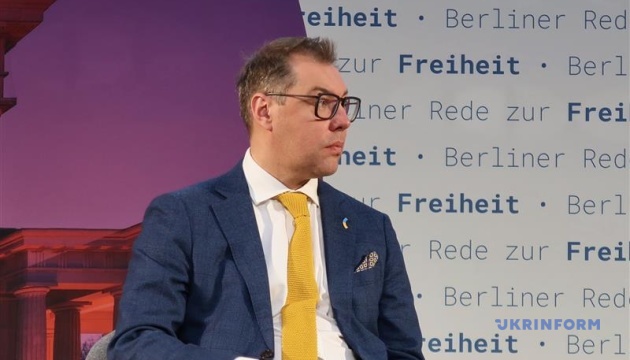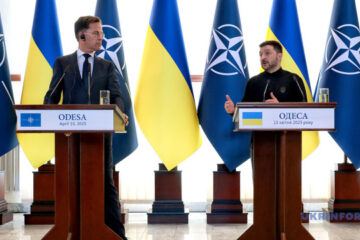
The coalition agreement of Germany’s incoming government shows strong solidarity with Ukraine, but it lacks specifics on certain aspects, including the continued support for Ukrainians residing in Germany.
As a result, Ukrainian diplomats will continue to work with political parties to safeguard the rights of Ukrainian nationals, Ukraine’s Ambassador to Germany, Oleksii Makeiev, told an Ukrinform correspondent.
“This is the strongest agreement we’ve seen so far. It includes many elements we’ve discussed with political parties, and I am grateful to the coalition parties,” the ambassador said, adding that he is very optimistic about Ukraine’s cooperation with the new federal government, the incoming chancellor, and the ministers.
At the same time, Makeiev noted that although the coalition agreement has been published, it remains unclear what concrete decisions the new government will make. The document itself does not go into detail, which he said is understandable.
For instance, there is no specific mention of what kind of benefits Ukrainian asylum seekers in Germany will receive. So far, German authorities have not provided detailed communication on the matter.
“We will work with the new government. But we also previously warned that this was about to happen: at the European level, changes will be made to the decisions adopted by the European Commission, and these changes will come into effect by 2026,” Makeiev said.
He expressed hope that both the integration process for Ukrainians in Germany and the voluntary return of those who wish to go back to Ukraine would be supported through the joint efforts of Ukraine’s Ministry of Foreign Affairs and the Ministry of National Unity, including through the establishment of so-called “Unity Hubs.” Makeiev did not specify when the first such hub would open in Germany.
“We are here to care for Ukrainians, and Ukrainians today are caring for all of Europe,” the ambassador said.
The coalition agreement, approved earlier this week by the conservative CDU/CSU bloc and the Social Democratic Party and currently awaiting final approval from all three parties (with CSU already having given its consent), confirms the abolition of the unemployment benefits system. While Ukrainian asylum seekers are not explicitly mentioned, this change directly affects them, as they are the only refugee group currently receiving the same unemployment benefits as German citizens who are temporarily out of work.
The agreement does not clarify under which provision Ukrainians with protected status will receive support, only noting that a “new basic support system” will be introduced.
Additionally, the agreement states that “refugees with residence rights under the Mass Influx Directive who enter the country after April 1, 2025, will be eligible for benefits under the Asylum Seekers’ Benefits Act, if they are in need.”
Again, Ukrainians are not mentioned, but they are the only group covered by the “residence rights” referred to. To receive support, newcomers will need to demonstrate actual need “through a consistent, nationwide assessment of assets.” In other words, thorough financial background checks will be required.
Overall, these changes indicate a significant reduction in financial assistance for Ukrainian war refugees.
Since the start of Russia’s full-scale invasion of Ukraine, Ukrainian war refugees have been able to stay in the EU without applying for asylum. This special status, not available to nationals of other countries, has included higher financial support and immediate access to the labor market. Since February 2022, nearly 1.2 million Ukrainians have found refuge in Germany, with around 40% reportedly employed.
Christian Democratic Party leader and likely future Chancellor Friedrich Merz had advocated for the abolition of the Burgergeld (unemployment benefit) system even before the elections, citing the need to cut public spending and encourage people to seek work more actively.
Source: Diplomats will work with German side on supporting Ukrainians in Germany – ambassador



